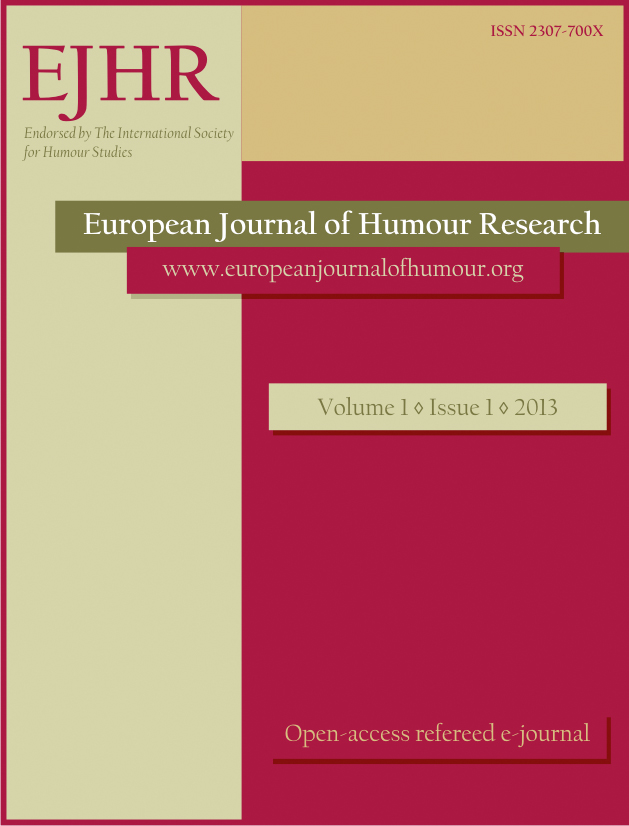Translating Aristophanes’ humour for the Modern Greek stage:
Translating Aristophanes’ humour for the Modern Greek stage:
The Acharnians at the National Theatre of Greece (1961–2005) and the State Theatre of Northern Greece (1991–2010)
Author(s): Vicky ManteliSubject(s): Theatre, Dance, Performing Arts, Language and Literature Studies, Fine Arts / Performing Arts, Theoretical Linguistics, Pragmatics, Translation Studies
Published by: Krakowskie Towarzystwo Popularyzowania Wiedzy o Komunikacji Językowej Tertium
Keywords: The Acharnians; humour translation; theatrical performance;
Summary/Abstract: The paper explores the reception of Aristophanes’ first extant comedy 'The Acharnians' (425 BC) in post-war Greek modern theatre by the two government-sponsored theatre institutions of Greece, namely the National Theatre of Greece (NTG) and the National Theatre of Northern Greece (NTNG). It discusses translation trends of Aristophanes’ text and focuses on the transference of source text humour in five playscripts, which were all performed from 1961 to 2010. Consequently, it will hopefully address issues of humour translation from a theatrical perspective. The paper applies linguistic tools and humour translation methodology in order to examine source text humour transference in a self-compiled corpus of target texts. I will focus on the paratragedy scene of the comic hero’s (Dikaiopolis’) visit to the house of Euripides (lines 394–488) in order to show that translators systematically mix verbal and referential humour in their texts, even when source text humour is clearly referential. I will also argue that translators extensively employ play with register, colloquialisms and anachronisms. When viewed historically, recent target texts tend to be ‘free adaptations’ of Aristophanes’ text rather than ‘translations’. Following this major conclusion the paper argues that Aristophanes’ comedy is culturally relocated by the two government-sponsored Greek stages. This strategy is probably necessitated by the function and the aims of the source text translation and its intended audiences, that is, theatrical performances in open theatres at popular summer festivals viewed by varied audiences of an equally varied assumed level of theatrical and classical sophistication.
Journal: The European Journal of Humour Research
- Issue Year: 1/2013
- Issue No: 1
- Page Range: 67-83
- Page Count: 17
- Language: English

